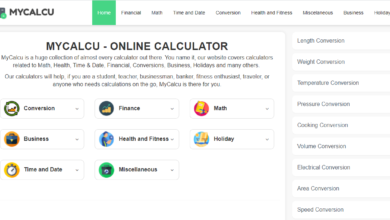Advantages and Disadvantages of Flutter App Development

The Flutter app development platform has seen an upsurge in its popularity in the past few years, and with this popularity comes interest from both companies and developers looking to make new apps or improve existing ones through the use of this development platform. But what are the advantages and disadvantages of Flutter app development? Let’s find out!
1) Ease of Use
One advantage of Flutter is that it is easy to use. It takes less time to develop a Flutter app than it does to develop an app using other frameworks. This is because Flutter uses a single codebase for both iOS and Android. In contrast, when developing with Xcode, the developer has to write two different versions of the same app – one for iOS and one for Android. Flutter apps are also usually much smaller in size than apps written in other languages such as Java or Swift.
2) Learning Curve
The biggest advantage of Flutter is that it speeds up the development process by allowing developers to create a single codebase for both iOS and Android. However, this also means that there is a bit of a learning curve for developers who are new to the platform. Additionally, because Flutter is still in its early stages, there are not as many libraries and resources available yet. There’s also no IDE (Integrated Development Environment) which can make things difficult when compared to other app-building platforms. Furthermore, while they do have great documentation on their website, some of it is not updated regularly enough or doesn’t go into enough detail.
Take look more about flutter: What is flutter used for
3) Testing Capabilities
One advantage of developing a flutter app is the testing capabilities. With the use of emulators, simulators, and hardware devices, you can test your app on multiple platforms without having to worry about compatibility issues. Plus, the hot-reload feature allows you to make changes to your code and see the results immediately, which can save you a lot of time in the development process. However, there are some disadvantages to using flutter as well.
4) How Flexible Is It?
When it comes to app development, flexibility is key. And that’s one area where Flutter really shines. With Flutter, you can develop for both iOS and Android at the same time using a single codebase. That means you can create a single app that runs on both platforms without having to build two separate apps. Plus, you can make changes to your app on the fly and see those changes reflected in real-time.
5) Scalability
One advantage of Flutter is that it is very scalable. This means that you can start small with just a few features and then gradually add more features as your business grows. Additionally, Flutter apps are designed to be responsive, so they will look great on any device. Another advantage of Flutter app development is that it allows for rapid development and deployment. Another major benefit is the cost-effectiveness of this technology because it requires less time and money to create an app than other technologies like Java or Swift.
6) Learning Resources
If you’re thinking about developing a mobile app, you may be wondering if Flutter is the right choice. Here are 8 advantages and disadvantages of Flutter app development to help you make your decision. – The cost of Flutter app development can vary greatly depending on the complexity of your idea.
– Developers who use Flutter find it easier to transition between platforms, as this framework gives you greater control over UI components for iOS and Android.
– Compared with other frameworks like React Native or Ionic, developers have found that it’s more difficult to build shared code with less common libraries in order to save time and money.
7) Reliability of Developers
When it comes to choosing a development team for your app, you want to make sure they are reliable. This means they have a good track record of completing projects on time and within budget. Furthermore, you want to make sure they have experience with the technology you’re using. For example, if you’re using Flutter, you want to make sure the developers have experience with that specific framework.
8) Flexibility
There are a few reasons why flexibility is important when it comes to app development. First, it allows you to change your mind about features without having to start from scratch. Second, it makes it easy to add new features as your business grows. Third, it allows you to update your app without going through the process of submitting a new version to the app store. Fourth, it makes it easy to test new features before rolling them out to your entire user base. Fifth, it gives you the ability to customize your app for different devices. Sixth, it allows you to use different programming languages for different parts of your app. Finally, it makes it easy to port your app to other platforms if you decide to do so in the future.
9) Dart Programming Language
Flutter Architecture has three layers, and one of them is the Dart framework. In this framework, developers design widgets, animation, classes, gestures, and other features. Dart framework is considered to have the most crucial elements for building a mobile app.
10) Flutter-based Apps have Easy Maintenance.
When you develop apps in Flutter, you use a single codebase for different platforms. It makes putting out updates also an easy process. With the option of sending updates to both Android and iOS simultaneously, mobile app owners can save extra money.
The version releases and updates are synchronized easily in the backend, so the developers don’t have to work on them separately. Bug fixes and other application maintenance are also easily managed by flutter developers.
11) Huge File Size
Although the apps developed in Flutter are beautiful, their file sizes are enormous. The file size of the app is a crucial factor for users who will be using it. Users prefer having applications with a small file size because almost every user struggles with storage space. The huge file size of an application takes a long time to download and update.
12) Has no iOS-specific Features
Flutter fails to provide the same feeling that comes when developing native solutions. Flutter, developed by Google, doesn’t have many iOS-specific features. The Cupertino library replicates Android’s Material Design, but many elements like text fields and buttons vary in iOS and Android.
Read More: The Complete Guide to Shopify App Builder and How It Can Help Ecom Businesses





